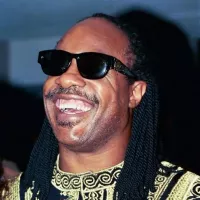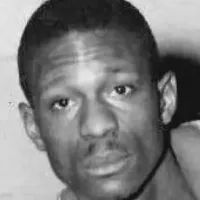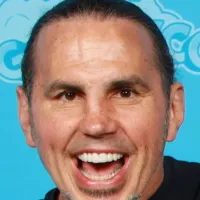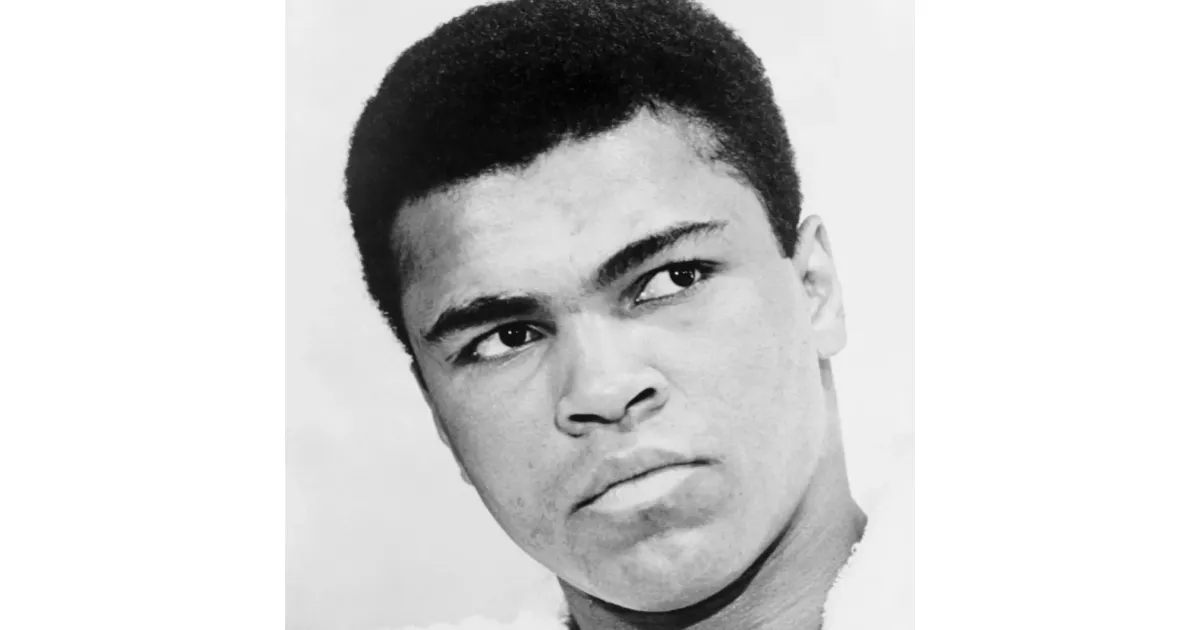Muhammad Ali, nicknamed "The Greatest," was an iconic American professional boxer and social activist, widely considered the greatest heavyweight boxer ever. He held multiple titles, including the Ring magazine heavyweight title (1964-1970), undisputed champion (1974-1978), and WBA and Ring heavyweight champion (1978-1979). His impact extended beyond boxing, making him a global cultural icon. He was named Sportsman of the Century by Sports Illustrated and Sports Personality of the Century by the BBC in 1999.
January 17, 1942: Muhammad Ali's Birth
On January 17, 1942, Cassius Marcellus Clay Jr., later known as Muhammad Ali, was born. He would become a famous boxer and social activist, known as "the Greatest".
1954: Amateur Boxing Debut
In 1954, Cassius Clay made his debut as an amateur boxer, facing Ronnie O'Keefe and winning by split decision. This marked the beginning of his amateur boxing career.
1955: Impact of Emmett Till Murder
In 1955, the murder of Emmett Till deeply affected the young Cassius Clay, later known as Muhammad Ali. He expressed immense distress over the event, which highlighted the racial injustice of the time.
February 1957: Meeting Angelo Dundee
In February 1957, Cassius Clay met Angelo Dundee during Clay's amateur boxing career. Dundee later became Clay's trainer, replacing Archie Moore.
1959: First Heard of Nation of Islam
In 1959, while fighting in the Golden Gloves tournament in Chicago, Ali first heard of the Nation of Islam.
October 29, 1960: Professional Boxing Debut
On October 29, 1960, Cassius Clay made his professional boxing debut, winning a six-round decision against Tunney Hunsaker. This marked the beginning of his professional career.
1960: Departure from Archie Moore's Camp
In 1960, Cassius Clay left Archie Moore's camp due to disagreements over chores. Subsequently, he hired Angelo Dundee as his trainer and sought Sugar Ray Robinson as his manager, though he was rebuffed.
1960: Victory at the Rome Olympics
In 1960, Cassius Clay won a gold medal in the light heavyweight division at the Summer Olympics held in Rome, marking a significant achievement in his amateur career.
1960: Olympic Gold and Professional Debut
In 1960, at the age of 18, Muhammad Ali, then known as Cassius Clay, won a gold medal in the light heavyweight division at the Summer Olympics. Later that year, he transitioned into professional boxing.
1961: Meeting with Gorgeous George
In 1961, Cassius Clay met with professional wrestler "Gorgeous George" Wagner in Las Vegas. George influenced Clay to use trash talk to attract fans, leading Clay to become a "big-mouth and a bragger."
1961: First Nation of Islam Meeting
In 1961, Muhammad Ali attended his first Nation of Islam meeting, keeping his involvement hidden from the public.
1962: Cameo Role in Requiem for a Heavyweight
In 1962, Ali had a cameo role in the film version of Requiem for a Heavyweight.
1962: Victory Over Archie Moore
In 1962, Cassius Clay achieved a significant victory by defeating Archie Moore, his former trainer and a veteran boxer. This win added to his growing reputation in the sport.
1962: Ali listed as 1-A for Conscription
In 1962, Muhammad Ali was listed as 1-A for conscription in the United States military after registering on his 18th birthday.
March 13, 1963: Fight of the Year vs. Doug Jones
On March 13, 1963, Cassius Clay fought Doug Jones at Madison Square Garden in New York. Jones staggered Clay in the first round, and Clay's unanimous decision victory was met with boos. The Ring magazine later named the fight "Fight of the Year."
1963: Top Contender for Sonny Liston's Title
By late 1963, Cassius Clay had become the top contender for Sonny Liston's heavyweight title. The fight was scheduled for February 25, 1964, in Miami Beach. Clay taunted Liston during the buildup, calling him "the big ugly bear."
1963: Undefeated Streak
By the end of 1963, Cassius Clay had amassed a record of 19-0 with 15 wins by knockout, defeating notable boxers and establishing himself as a formidable force in the boxing world.
1963: First appeared on Sports Illustrated cover
In 1963, Ali first appeared on the cover of Sports Illustrated magazine.
1963: Released I Am the Greatest Album
In 1963, Ali released an album of spoken word music titled I Am the Greatest on Columbia Records.
1963: Lonnie Williams Moves to Louisville
In 1963, Lonnie Williams' family moved to Louisville, where she first met Muhammad Ali at the age of 6.
February 25, 1964: World Heavyweight Championship Win
On February 25, 1964, Muhammad Ali, at 22, achieved a significant upset by defeating Sonny Liston to win the world heavyweight championship. During that year, he also denounced his birth name, Cassius Clay, and formally changed his name to Muhammad Ali.
August 14, 1964: Ali Marries Sonji Roi
On August 14, 1964, Muhammad Ali married Sonji Roi after a brief courtship. The marriage was short-lived due to disagreements over Sonji's refusal to adhere to the Nation of Islam's expectations.
1964: Recorded Stand by Me Cover
In 1964, Ali recorded a cover version of the rhythm and blues song "Stand by Me".
1964: Ali reclassified as Class 1-Y
In 1964, Muhammad Ali was reclassified as Class 1-Y (fit for service only in times of national emergency) after failing the U.S. Armed Forces qualifying test due to his dyslexia.
1964: Nation of Islam Membership
In 1964, after winning the championship from Liston, the Nation of Islam agreed to publicize Ali's membership. Shortly afterwards on March 6, Elijah Muhammad gave a radio address that Clay would be renamed Muhammad (one who is worthy of praise) Ali (most high).
May 1965: Controversial Rematch with Liston
In May 1965, Muhammad Ali, formerly Cassius Clay, faced Sonny Liston in a controversial rematch in Lewiston, Maine. Liston was knocked down by a "phantom punch" and the fight was stopped after Liston had been down for about 20 seconds, with Ali declared the winner by knockout.
November 22, 1965: Title Defense Against Floyd Patterson
On November 22, 1965, Muhammad Ali defended his title against former heavyweight champion Floyd Patterson. Ali mocked Patterson, calling him "The Rabbit," and won by a technical knockout after 12 rounds.
January 10, 1966: Ali Divorces Sonji Roi
On January 10, 1966, Muhammad Ali and Sonji Roi divorced due to disagreements over her refusal to join the Nation of Islam.
March 1966: Ali Refuses Armed Forces Induction
In March 1966, Muhammad Ali refused to be inducted into the armed forces.
March 29, 1966: Fight Sanction Refused
Muhammad Ali and Ernie Terrell had agreed to a fight on March 29, 1966, in Chicago. However, after Ali was reclassified by the draft board and indicated he would refuse to serve in the Vietnam War, the Illinois Athletic Commission refused to sanction the fight.
1966: Fight against George Chuvalo
Ali's 1966 fight against George Chuvalo was the subject of the 2003 documentary film The Last Round: Chuvalo vs. Ali.
1966: Popularized "Different strokes for different folks"
In 1966, Ali popularized the quote "Different strokes for different folks", which later inspired the title of the 1967 Syl Johnson song "Different Strokes".
1966: Pledged Donation to UNCF
In late 1966, Ali pledged to donate a total of $100,000 to the UNCF and paid $4,500 per closed circuit installation at six HBCUs so they could watch his fights.
February 6, 1967: Ali vs. Terrell Fight
On February 6, 1967, Muhammad Ali fought Ernie Terrell in Houston. Terrell, considered Ali's toughest opponent since Liston, was unbeaten in five years. Ali won a unanimous 15-round decision in a fight marked by Ali's taunting of Terrell.
March 1967: Ali Denied Boxing License and Stripped of Passport
In March 1967, Muhammad Ali was systematically denied a boxing license in every state and stripped of his passport.
April 28, 1967: Ali Refuses Induction into U.S. Armed Forces
On April 28, 1967, in Houston, Muhammad Ali refused three times to step forward for his scheduled induction into the U.S. Armed Forces and was arrested, leading to the suspension of his boxing license and stripping of his title.
June 4, 1967: "Cleveland Summit" Support for Ali
On June 4, 1967, a group of high-profile African-American athletes, including Jim Brown, Bill Russell, and Kareem Abdul-Jabbar, assembled with Ali at the Negro Industrial Economic Union in Cleveland for the "Cleveland Summit" to support Ali regarding his convictions.
June 20, 1967: Ali Found Guilty of Draft Evasion
On June 20, 1967, Muhammad Ali was found guilty by a jury of violating Selective Service laws by refusing to be drafted.
August 17, 1967: Ali Marries Belinda Boyd
On August 17, 1967, Muhammad Ali married 17-year-old Belinda Boyd, who later changed her name to Khalilah Ali. They had met years prior when she was a child.
1967: Donation to United Negro College Fund
In 1967, Ali became the largest single black donor to the United Negro College Fund with a $10,000 donation ($78,000 in 2020 USD).
1967: Syl Johnson song "Different Strokes" released
In 1967, Ali inspired the title of the Syl Johnson song "Different Strokes", which became one of the most sampled songs in pop music history.
1968: Paved the way for The Last Poets
In 1968, Ali played a role in the shaping of the black poetic tradition, paving the way for The Last Poets.
1968: Birth of Maryum "May May" Ali
In 1968, Muhammad Ali and Belinda Boyd (Khalilah Ali) had their first child, a daughter named Maryum, also known as "May May", who would later become an author and rapper.
1969: Ali Films Sparring Match Against Rocky Marciano
In 1969, Muhammad Ali filmed sparring matches against retired champion Rocky Marciano for a privately staged fantasy fight.
1969: Starred in Buck White
In 1969, during his exile from boxing, Ali starred in the short-lived Broadway musical, Buck White.
1969: Inspiration from Gorgeous George
In a 1969 interview, Muhammad Ali stated that he met with professional wrestler "Gorgeous George" Wagner in Las Vegas in 1961. George told him that trash talk would earn him fans who either wanted to see him win or lose, so Clay transformed himself into a self-described "big-mouth and a bragger."
August 11, 1970: Ali Granted Boxing License in Atlanta
On August 11, 1970, Muhammad Ali was granted a license to box by the City of Atlanta Athletic Commission, paving the way for his comeback.
October 1970: End of Ali's Boxing Ban
In October 1970, Muhammad Ali's boxing ban came to an end, after he was unable to fight since March 1967.
1970: Estimated fight purse earnings between 1970 and 1978
By 1978, Ali's total fight purse earnings were estimated to be nearly $60 million (inflation-adjusted $391 million), including an estimated $47.45 million grossed between 1970 and 1978.
1970: Paved the way for Gil Scott-Heron
In 1970, Ali played a role in the shaping of the black poetic tradition, paving the way for Gil Scott-Heron.
1970: Birth of Jamillah and Rasheda Ali
In 1970, Muhammad Ali and Belinda Boyd (Khalilah Ali) had twins, Jamillah and Rasheda.
1970: Ali Honored with Martin Luther King Award
In 1970, Muhammad Ali was honored with the annual Martin Luther King Award by Ralph Abernathy, who recognized him as a "living example of soul power", with Coretta Scott King adding that Ali was "a champion of justice and peace and unity".
1970: Fantasy Fight Against Rocky Marciano Shown in Movie Theaters
In 1970, edited versions of the simulated fight between Muhammad Ali and Rocky Marciano were shown in movie theaters, with differing outcomes for U.S. and European versions.
March 8, 1971: Ali vs Frazier Fight of the Century
On March 8, 1971, Muhammad Ali and Joe Frazier's first fight, held at Madison Square Garden, was dubbed the "Fight of the Century" due to the immense excitement surrounding the bout between two undefeated fighters.
June 28, 1971: Supreme Court Overturns Ali's Conviction
On June 28, 1971, the Supreme Court of the United States overturned Muhammad Ali's conviction in Clay v. United States due to the appeal board's lack of stated reasons for denying him conscientious objector status.
1971: Ali and Wilt Chamberlain Fight Cancelled
In 1971, Muhammad Ali influenced Wilt Chamberlain into calling off a scheduled boxing match by taunting him, leading Chamberlain to abandon what the Los Angeles Lakers owner termed "this boxing foolishness."
1971: Ali begins Training in Pennsylvania
In 1971, Muhammad Ali started training at a farm near Reading, Pennsylvania.
1971: Ali's Conviction Overturned
In 1971, Muhammad Ali's conviction for refusing to be inducted into the armed forces was overturned.
1971: Ali's Case Reviewed by U.S. Supreme Court
In 1971, The U.S. Supreme Court reviewed Muhammad Ali's case after the Court of Appeals upheld the conviction.
1971: Supreme Court Overturns Draft Evasion Conviction
In 1971, the Supreme Court overturned Muhammad Ali's conviction for draft evasion, allowing him to resume his boxing career after nearly four years of inactivity. This marked a triumph in his legal battle against the U.S. government's attempt to force him to serve in the Vietnam War.
1971: Fight of the Century and FBI Burglary
In 1971, the anticipation for Ali's "Fight of the Century" with Frazier was used by the Citizens' Commission to Investigate the FBI to pull off a burglary at an FBI office, exposing the COINTELPRO operations that included illegal spying on activists involved with the civil rights and anti-war movements, including Ali.
1972: Appeared in Black Rodeo
In 1972, Ali appeared in the documentary film Black Rodeo, riding both a horse and a bull.
1972: Hajj Pilgrimage to Mecca
In 1972, Ali went on the Hajj pilgrimage to Mecca, which inspired him giving him a different outlook and greater spiritual awareness.
1972: Birth of Miya Ali
In 1972, Miya Ali was born to Muhammad Ali from an extramarital relationship with Patricia Harvell.
1972: Second Fight with Floyd Patterson
In 1972, Muhammad Ali arranged a second fight with the financially struggling Floyd Patterson to help him earn money to pay a debt to the IRS, demonstrating Ali's generosity and support for his fellow boxer.
1972: Ali Establishes Training Camp in Deer Lake
In 1972, Muhammad Ali established his training camp in Deer Lake, Pennsylvania, where he trained for all his fights until the end of his career.
1972: Ali Wins Six Fights
In 1972, Muhammad Ali won a total of six fights after fighting Jerry Quarry, and had a second bout with Floyd Patterson, and faced Bob Foster.
1973: Ali Wears "People's Choice" Robe
In 1973, Muhammad Ali wore a "People's Choice" robe given to him by Elvis Presley during two bouts he had with Joe Bugner and Ken Norton.
1973: Extramarital Relationship with Wanda Bolton
In 1973, while married to Belinda Boyd, Muhammad Ali began an extramarital relationship with 16-year-old Wanda Bolton (later Aaisha Fletcher).
January 28, 1974: Ali vs. Frazier Rematch at Madison Square Garden
On January 28, 1974, Muhammad Ali had a rematch with Joe Frazier at Madison Square Garden, after Frazier had recently lost his title to George Foreman.
June 1974: Birth of Khaliah Ali
In June 1974, Muhammad Ali and Wanda Bolton (Aaisha Fletcher) had a daughter, Khaliah.
October 30, 1974: The Rumble in the Jungle
On October 30, 1974, Muhammad Ali fought against heavyweight champion George Foreman in Kinshasa, Zaire, in a bout nicknamed The Rumble in the Jungle. At the time, almost no one gave Ali a chance of winning.
1974: Television Viewership Records
From 1974, Muhammad Ali's fights were some of the world's most-watched television broadcasts, setting television viewership records.
1974: Visited Palestinian Refugee Camp
In 1974, Ali visited a Palestinian refugee camp in Southern Lebanon and declared support for the Palestinian struggle.
1974: World Champion Boxer
In 1974, Ali was the subject of numerous creative works including books, films, music, video games, and TV shows. Several of his fights were watched by an estimated 1–2 billion viewers between 1974 and 1980.
October 1, 1975: Thrilla in Manila
On October 1, 1975, Ali fought Joe Frazier in the "Thrilla in Manila". Ali started aggressively but tired, employing the "rope-a-dope" strategy. Frazier attacked relentlessly, but Ali landed blows in the 12th round, impairing Frazier's vision. Ali dominated rounds 13 and 14. Frazier's trainer stopped the fight after the 14th round, awarding Ali a TKO victory.
1975: Published The Greatest: My Own Story
In 1975, Ali's autobiography, The Greatest: My Own Story, co-written with Richard Durham, was published.
1975: Ali Buys Home in Michigan
In 1975, Muhammad Ali and Lonnie Williams bought their home in Berrien Springs, Michigan.
1975: Construction began on Ali Mall
In 1975, construction of Ali Mall in Araneta Center, Quezon City, Philippines, began shortly after his victory in a match with Joe Frazier in nearby Araneta Coliseum.
1975: Recollection of Olympic Medal Incident
In his 1975 autobiography, Muhammad Ali recalled throwing his gold medal into the Ohio River after being refused service at a whites-only restaurant following his return from the Rome Olympics in 1960. However, this story was later disputed.
February 2, 1976: Ali Defeats Coopman
On February 2, 1976, Muhammad Ali defeated Jean-Pierre Coopman by a 5th round knockout, though the WBC Heavyweight title was not at stake in this particular fight.
April 30, 1976: Ali Wins Against Young
On April 30, 1976, Ali fought Jimmy Young and won a controversial unanimous decision. Howard Cosell commented on Ali's off timing, and Ali admitted to conserving energy for Ken Norton.
May 24, 1976: Ali Defeats Dunn
On May 24, 1976, Ali defeated Richard Dunn by a 5th round technical knockout using the "Accupunch" taught to him by Taekwondo Grandmaster Jhoon Rhee, learned from Bruce Lee. This marked the last knockout victory in Ali's boxing career.
June 1, 1976: Confrontation with Gorilla Monsoon
On June 1, 1976, Ali confronted professional wrestler Gorilla Monsoon in the ring at a World Wide Wrestling Federation show in Philadelphia Arena, where Monsoon put Ali in an airplane spin and dumped him to the mat.
June 26, 1976: Ali vs. Inoki Exhibition Bout
On June 26, 1976, Ali participated in an exhibition bout in Tokyo against Antonio Inoki. Due to restricted rules, Ali only landed two jabs while Inoki's kicks caused blood clots and an infection, almost resulting in amputation of Ali's leg. The match was declared a draw and is now considered an influential mixed-style fight.
September 1976: Ali Wins Controversial Decision Against Norton, Announces Retirement
In September 1976, Ali fought Ken Norton for the third time at Yankee Stadium and won a controversial decision. Ringside commentators favored Norton. Following the fight, Ali announced his retirement from boxing to practice his faith, having converted to Sunni Islam.
1976: African Boycott of the 1976 Olympics
In 1976, African countries boycotted the Olympics in protest of Apartheid in South Africa.
1976: Ali Mall opened in the Philippines
In 1976, Ali Mall, located in Araneta Center, Quezon City, Philippines, opened and was named after Ali.
1976: Grammy Nomination for Children's Recording
In 1976, Ali received a Grammy nomination for "Best Recording for Children" with his spoken word novelty record, The Adventures of Ali and His Gang vs. Mr. Tooth Decay.
1976: Release of 'The Adventures of Ali and His Gang vs. Mr. Tooth Decay'
In 1976, Muhammad Ali released "The Adventures of Ali and His Gang vs. Mr. Tooth Decay," another spoken-word album that received a Grammy Award nomination. This project highlighted his creative endeavors beyond boxing.
May 1977: Ali Beats Evangelista
In May 1977, Ali returned to boxing and beat Alfredo Evangelista.
December 1977: Birth of Laila Ali
In December 1977, Muhammad Ali and Veronica Porché had their second daughter, Laila Ali, who later became a professional boxer.
1977: Dedication to Helping People
In 1977, Ali stated that after retirement, he would dedicate his life to helping people, charitable causes, uniting people, and making peace.
1977: The Greatest Film Adaptation
In 1977, Ali's book The Greatest was adapted into a film, The Greatest, where he played himself.
1977: Osmon Williams Born
In 1977, Osmon Williams, who would later claim to be Muhammad Ali's son, was born.
1977: Asked to Paint
In 1977, Rodney Hilton Brown asked Ali if he was interested in painting, and Ali produced several paintings for him to sell.
1978: Estimated fight purse earnings
By 1978, Ali's total fight purse earnings were estimated to be nearly $60 million (inflation-adjusted $391 million), including an estimated $47.45 million grossed between 1970 and 1978.
1978: Revealed financial status and net worth estimate
In 1978, Ali revealed that he was "broke" and several news outlets reported his net worth to be an estimated $3.5 million (inflation-adjusted $17 million). The press attributed his decline in wealth to several factors, including taxes consuming at least half of his income, management taking a third of his income, his lifestyle, and spending on family, charity and religious causes.
1978: Starred in Freedom Road
In 1978, Ali starred in the film Freedom Road as Gideon Jackson, a former slave and Union soldier elected to the U.S. Senate in 1870s Virginia.
1978: Subject of British television program This Is Your Life
In 1978, Ali was the subject of the British television program This Is Your Life when he was surprised by Eamonn Andrews. Ali was also featured in Superman vs. Muhammad Ali, a 1978 DC Comics comic book pitting the champ against the superhero.
1978: Ali's Views on Women Boxing
In 1978, Muhammad Ali expressed his opposition to women's boxing, stating, "Women are not made to be hit in the breast, and face like that."
1978: Visited Bangladesh and Participated in The Longest Walk
In 1978, following his loss to Spinks and before winning the rematch, Ali visited Bangladesh and received honorary citizenship. In the same year, he participated in The Longest Walk, a protest march in the United States in support of Native American rights.
1978: Received accolades in Louisville
In 1978, shortly after becoming heavyweight champion of the world for the third time, and three years before his permanent retirement, Ali received a round of accolades in his hometown of Louisville. In September 1978, at a tribute ceremony held at Fairgrounds Stadium, then-Governor of Kentucky Julian Carroll proclaimed 1978 the "Year of Ali" and presented to Ali the Governor's Distinguished Service Award. In November 1978, the Louisville Board of Aldermen voted to rename downtown thoroughfare Walnut Street to Muhammad Ali Boulevard.
July 27, 1979: Ali Announces Short-Lived Retirement
On July 27, 1979, Muhammad Ali announced his retirement from boxing, but his retirement was short-lived. He announced a comeback to fight Larry Holmes for the WBC belt, motivated by a need for money.
1979: Guest starred in an episode of Diff'rent Strokes
In 1979, Ali guest starred as himself in an episode of the NBC sitcom Diff'rent Strokes.
July 31, 1980: NAC Accepts Mayo Clinic's Opinion
On July 31, 1980, the Nevada Athletic Commission (NAC) accepted the Mayo Clinic's opinion that Muhammad Ali was fit to fight, paving the way for his return to the ring.
October 2, 1980: Ali Fights Holmes
On October 2, 1980, Muhammad Ali fought Larry Holmes at Caesars Palace in Las Vegas. Holmes dominated the fight, and Angelo Dundee stopped it after the tenth round. It was Ali's only loss by stoppage.
1980: Estimated fight purse earnings
By 1980, Ali's total fight purse earnings were estimated to be up to $70 million (inflation-adjusted $339 million).
1980: World Champion Boxer
In 1980, Ali was the subject of numerous creative works including books, films, music, video games, and TV shows. Several of his fights were watched by an estimated 1–2 billion viewers between 1974 and 1980.
1980: Diplomatic Mission to Africa
In early 1980, Ali was recruited by President Jimmy Carter for a diplomatic mission to Africa to persuade African governments to join the US-led boycott of the Moscow Olympics.
1980: Television Viewership Records
Until 1980, Muhammad Ali's fights were some of the world's most-watched television broadcasts, setting television viewership records.
January 19, 1981: Talked Man Down from Ledge
On January 19, 1981, in Los Angeles, Ali talked a suicidal man down from jumping off a ninth-floor ledge.
December 11, 1981: Ali's Last Fight
Despite pleas to retire, on December 11, 1981, Ali fought Trevor Berbick in Nassau, Bahamas, losing a ten-round decision. This was his final fight.
1981: End of Training at Deer Lake Camp
In 1981, Muhammad Ali ended his training at Deer Lake camp at the end of his career.
1981: Retirement from Boxing
In 1981, Muhammad Ali retired from professional boxing. Following his retirement, he dedicated his time to religion, philanthropy, and activism.
1981: $3 Million Lawsuit
In 1981, Temica Williams (also known as Rebecca Holloway) launched a $3 million lawsuit against Ali for sexual assault, claiming that she had started a sexual relationship with him when she was 12, and that her son Osmon (born 1977) was fathered by Ali when she was 17. She further alleged that Ali had originally supported her and her son financially, but stopped doing so after four years.
1982: Lonnie Becomes Ali's Caregiver
In 1982, Lonnie Williams became Muhammad Ali's primary caregiver, with Ali supporting her graduate studies at UCLA.
June 12, 1983: Ali vs. Semenko Exhibition Match
On June 12, 1983, Ali fought NHL player Dave Semenko in an exhibition match. The match was officially a draw after three rounds, with reports indicating Ali was mostly toying with Semenko.
1984: Endorsed Ronald Reagan
In 1984, Ali announced his support for the re-election of United States President Ronald Reagan, citing Reagan's support for keeping "God in schools".
1984: Diagnosed with Parkinson's Syndrome
In 1984, Ali was diagnosed with Parkinson's syndrome, sometimes resulting from head trauma from violent physical activities such as boxing.
January 1985: Aaisha Fletcher Sues Ali
In January 1985, Aaisha Fletcher sued Muhammad Ali for unpaid palimony, resulting in Ali setting up a $200,000 trust fund for their daughter, Khaliah.
March 31, 1985: Special Guest Referee at WrestleMania
On March 31, 1985, Ali served as the special guest referee for the main event of the inaugural WrestleMania.
1985: Visited Israel to Request Prisoner Release
In 1985, Ali visited Israel to request the release of Muslim prisoners at Atlit detainee camp, a request that was declined.
November 19, 1986: Ali Marries Lonnie Williams
On November 19, 1986, Muhammad Ali married Yolanda "Lonnie" Williams, who had known him since childhood. Lonnie became his primary caregiver and later managed his intellectual properties.
1986: Ali and Porché Divorce
By 1986, Muhammad Ali and Veronica Porché divorced due to Ali's continuous infidelity.
1986: Mike Tyson Breaks Heavyweight Records
In 1986, Mike Tyson broke both the youngest heavyweight champion and fastest boxer to win championship records when he defeated Trevor Berbick to win the heavyweight title at age 20.
1986: Lawsuit Thrown Out
In 1986, the $3 million lawsuit filed against Ali by Temica Williams in 1981 was thrown out due to the statute of limitations.
1987: Selected to personify U.S. Constitution
In 1987, the California Bicentennial Foundation for the U.S. Constitution selected Ali to personify the vitality of the U.S. Constitution and Bill of Rights.
1988: Second Hajj Pilgrimage
In 1988, Ali went on another Hajj pilgrimage to Mecca.
1988: Paternity Test Claim
In 1988, Kiiursti Mensah-Ali claims a paternity test showed Muhammad Ali to be her father with Barbara Mensah, with whom he allegedly had a 20-year relationship. Kiiursti claimed Ali accepted responsibility and took care of her, but contact ceased after his marriage to Lonnie.
1989: Participated in Indian charity event
In 1989, Ali participated in an Indian charity event with the Muslim Educational Society in Kozhikode, Kerala, along with Bollywood actor Dilip Kumar.
1990: Named one of the 100 most influential Americans
In 1990, Ali was named one of the 100 most influential Americans of the 20th century by Life magazine.
1990: Traveled to Iraq and negotiated hostage release
In 1990, prior to the Gulf War, Ali traveled to Iraq and met with president Saddam Hussein in an attempt to negotiate the release of American hostages. Ali secured the release of the hostages, in exchange for promising Hussein that he would bring America "an honest account" of Iraq. Despite arranging the hostages' release, he received criticism.
1991: Release of Biography Muhammad Ali: His Life and Times
In 1991, the oral history biography, Muhammad Ali: His Life and Times, by Thomas Hauser was released.
1992: Incorporation of G.O.A.T. Inc.
In 1992, Lonnie Williams incorporated Greatest of All Time, Inc. (G.O.A.T. Inc) to manage and license Muhammad Ali's intellectual properties for commercial use, serving as vice president and treasurer.
1993: Pancrase founded
In 1993, Masakatsu Funaki and Minoru Suzuki, inspired by the Muhammad Ali vs. Antonio Inoki fight, founded Pancrase.
1993: Most Recognized Athlete
In 1993, the Associated Press reported that Ali was tied with Babe Ruth as the most recognized athlete in America, out of over 800 athletes.
1994: Campaign to aid Rwandan refugees
In 1994, Ali campaigned to the United States government to come to the aid of refugees afflicted by the Rwandan genocide, and to donate to organizations helping Rwandan refugees.
1995: Sports Diplomacy Mission to North Korea
In 1995, Ali led a group of Japanese and American professional wrestlers, including his 1976 opponent Antonio Inoki, on a sports diplomacy mission to North Korea and was guest of honor at the Collision in Korea wrestling event.
1996: Lit the flame at the 1996 Summer Olympics
In 1996, Ali lit the flame at the 1996 Summer Olympics in Atlanta, Georgia. This event was watched by an estimated 3.5 billion viewers worldwide.
1996: Lighting of the torch at the Atlanta Olympics
In 1996, Ali's lighting of the torch at the Atlanta Olympics was watched by an estimated 3.5 billion viewers.
1996: Replacement Medal and Olympic Torch Lighting
In 1996, Muhammad Ali received a replacement gold medal at the Georgia Dome during the Olympics in Atlanta. He also had the honor of lighting the torch to start the Games.
1996: When We Were Kings wins Academy Award
In 1996, the documentary When We Were Kings, about the Rumble in the Jungle, won the Academy Award for Best Documentary Feature.
1997: Received Arthur Ashe Courage Award
In 1997, Ali was the recipient of the Arthur Ashe Courage Award.
1997: Pride Fighting Championships founded
In 1997, Pride Fighting Championships was founded inspired by Pancrase.
1997: Met a lesbian couple and expressed happiness for them
In 1997, after Ali met a lesbian couple who were fans of his, he smiled and expressed happiness for their relationship, as noted by his biographer Thomas Hauser. Ali wanted people to be happy.
1998: Began working with Michael J. Fox for Parkinson's awareness
In 1998, Ali began working with actor Michael J. Fox, who has Parkinson's disease, to raise awareness and fund research for a cure.
1998: Birth of Biaggio Ali Walsh
In 1998, Biaggio Ali Walsh, grandson of Muhammad Ali and son of Rasheda Ali Walsh, was born. He is an amateur MMA fighter.
1999: Time Magazine's 100 Most Important People
In 1999, Ali was named in Time magazine's list of the 100 Most Important People of the 20th Century, alongside Pelé and Jackie Robinson.
1999: Laila Ali Becomes a Boxer
In 1999, Laila Ali, Muhammad Ali's daughter, started her career as a professional boxer.
1999: Muhammad Ali Boxing Reform Act Introduced
In 1999, The Muhammad Ali Boxing Reform Act was introduced in United States.
2000: Worked with the Michael J. Fox Foundation for Parkinson's Research
In 2000, Ali worked with the Michael J. Fox Foundation for Parkinson's Research to raise awareness and encourage donations for research.
2000: Birth of Nico Ali Walsh
In 2000, Nico Ali Walsh, grandson of Muhammad Ali and son of Rasheda Ali Walsh, was born. He is a professional boxer.
2000: Muhammad Ali Boxing Reform Act Passed
In 2000, The Muhammad Ali Boxing Reform Act passed to protect the rights and welfare of boxers in the United States.
January 2001: Presented with the Presidential Citizens Medal
In January 2001, Ali was presented with the Presidential Citizens Medal by President Bill Clinton.
2001: Response to September 11 Attacks
After the September 11 attacks in 2001, Ali stated that "Islam is a religion of peace" and condemned the actions of those who caused the destruction.
2001: Promoted biopic and contributed to tribute concert
In 2001, Ali promoted his own biopic, Ali, and also contributed an on-camera segment to the America: A Tribute to Heroes benefit concert.
2001: Khaliah Ali's Comments
In 2001, Khaliah Ali stated that she believed her father, Muhammad Ali, viewed her as "a mistake".
2001: Will Smith's Oscar Nomination for Ali
In 2001, Will Smith received a Best Actor Oscar nomination for his portrayal of Ali in the biopic Ali.
November 17, 2002: Visited Afghanistan as the "U.N. Messenger of Peace"
On November 17, 2002, Ali visited Afghanistan as the "U.N. Messenger of Peace". He was in Kabul for a three-day goodwill mission as a special guest of the UN.
2002: Joint appearance with Michael J. Fox before Congress
In 2002, Ali and Michael J. Fox made a joint appearance before Congress to push the case for Parkinson's research.
2002: Honored with a star on the Hollywood Walk of Fame
In 2002, Ali was honored with a star on the Hollywood Walk of Fame for his contributions to the entertainment industry. His star is mounted on a vertical surface.
2003: Release of the documentary film The Last Round: Chuvalo vs. Ali
In 2003, The Last Round: Chuvalo vs. Ali, a documentary about Ali's 1966 fight against George Chuvalo, was released.
2004: Conversion to Sunni Islam
In his 2004 autobiography, Ali attributed his conversion to mainstream Sunni Islam to Warith Deen Muhammad, who assumed leadership of the Nation of Islam and persuaded the Nation's followers to become adherents of Sunni Islam.
November 2005: Opened the Muhammad Ali Center in Louisville
In November 2005, Ali and his wife Lonnie Ali opened the $54 million, 93,000 ft, non-profit Muhammad Ali Center in downtown Louisville. The center focuses on core themes of peace, social responsibility, respect, and personal growth.
November 2005: Presented with the Presidential Medal of Freedom
In November 2005, Ali was presented with the Presidential Medal of Freedom by President George W. Bush.
December 2005: Received Otto Hahn Peace Medal in Gold
In December 2005, Ali received the Otto Hahn Peace Medal in Gold from the UN Association of Germany (DGVN) in Berlin for his work with the civil rights movement and the United Nations.
2006: Sold name and image for $50 million
In 2006, Ali sold his name and image for $50 million, after which Forbes estimated his net worth to be $55 million in 2006.
2006: Sale of G.O.A.T. Inc.
In 2006, Greatest of All Time, Inc. (G.O.A.T. Inc), managed by Lonnie Williams, was sold.
2006: ESPN produced documentary Ali Rap
In 2006, the documentary Ali Rap was produced by ESPN, with Chuck D of Public Enemy as the host. Other rappers narrated the documentary as well, including Doug E Fresh, Ludacris and Rakim who all spoke on Ali's behalf in the film.
June 2007: Received honorary doctorate from Princeton University
In June 2007, Ali received an honorary doctorate of humanities at Princeton University's 260th graduation ceremony.
2007: Laila Ali Retires From Boxing
In 2007, Laila Ali, Muhammad Ali's daughter, retired from professional boxing.
2007: UFC acquired Pride
In 2007, Ultimate Fighting Championship acquired Pride Fighting Championships.
2008: Sports Illustrated created the Sportsman Legacy Award
In 2008, Sports Illustrated originally created the Sportsman Legacy Award which was renamed to the Sports Illustrated's Muhammad Ali Legacy Award in 2015.
September 1, 2009: Visited ancestral home in Ireland
On September 1, 2009, Ali visited Ennis, County Clare, Ireland, the home of his great-grandfather, Abe Grady, who emigrated to the U.S. in the 1860s.
2010: Osmon Williams Claim
In 2010, Osmon Williams claimed to be Ali's biological son.
July 27, 2012: Bearer of Olympic flag and awarded Philadelphia Liberty Medal
On July 27, 2012, Ali was a titular bearer of the Olympic flag during the opening ceremonies of the 2012 Summer Olympics in London. The same year, he was awarded the Philadelphia Liberty Medal in recognition of his lifelong efforts in activism, philanthropy and humanitarianism.
February 2013: Rumors of failing health and death
In February 2013, Ali's brother Rahaman Ali said Muhammad could no longer speak and could be dead within days. Ali's daughter May May Ali responded to the rumors, stating that she had talked to him on the phone the morning of February 3 and he was fine.
August 2013: The Trials of Muhammad Ali documentary opened in Manhattan
In August 2013, The Trials of Muhammad Ali, a documentary focusing on Ali's refusal of the draft during the Vietnam War, opened in Manhattan. Also in 2013, a made-for-TV movie titled Muhammad Ali's Greatest Fight dramatized the same aspect of Ali's life.
2013: The Trials of Muhammad Ali Documentary Released
In 2013, the documentary "The Trials of Muhammad Ali" was released, covering Ali's resistance to the draft.
December 20, 2014: Hospitalized for pneumonia
On December 20, 2014, Ali was hospitalized for a mild case of pneumonia.
January 15, 2015: Hospitalized for urinary tract infection
On January 15, 2015, Ali was hospitalized for a urinary tract infection after being found unresponsive at a guest house in Scottsdale, Arizona. He was released the next day.
November 2015: Paris Attacks
The November 2015 Paris attacks occurred.
December 2015: Response to Paris Attacks
In December 2015, after the November 2015 Paris attacks, Ali condemned the violence of so-called Islamic jihadists and urged Muslims to stand up against those who use Islam for their personal agenda.
2015: Sports Illustrated renamed its Legacy Award after Muhammad Ali
In 2015, Sports Illustrated renamed its Sportsman Legacy Award to the Sports Illustrated's Muhammad Ali Legacy Award.
2015: Recognizable Athletes in the United States
In 2015, a Harris Poll found that Ali was one of the three most recognizable athletes in the United States, along with Michael Jordan and Babe Ruth.
May 2016: Bill introduced to extend the Ali Act to MMA
In May 2016, a bill was introduced to United States Congress by Markwayne Mullin to extend the Ali Act to mixed martial arts.
June 2, 2016: Hospitalized with a respiratory illness
On June 2, 2016, Ali was hospitalized in Scottsdale, Arizona, with a respiratory illness. His condition worsened, and he died the following day at the age of 74 from septic shock.
June 3, 2016: Muhammad Ali's Death
On June 3, 2016, Muhammad Ali, the celebrated boxer and social activist, passed away, leaving behind a legacy as a global cultural icon and one of the greatest heavyweight boxers of all time.
June 9, 2016: Islamic Janazah prayer service
On June 9, 2016, Ali's funeral services began in Louisville with an Islamic Janazah prayer service at Freedom Hall. The Janazah prayer was attended by Turkish President Recep Tayyip Erdoğan.
June 10, 2016: Funeral procession and public memorial service
On June 10, 2016, Ali's funeral procession passed through the streets of Louisville ending at Cave Hill Cemetery, where his body was interred during a private ceremony. A public memorial service for Ali at downtown Louisville's KFC Yum! Center was held during the afternoon of June 10. The memorial was watched by an estimated 1 billion viewers worldwide.
June 2016: Proposed amendment to US draft laws named after Ali
In June 2016, US senator Rand Paul proposed an amendment to the US draft laws named after Ali, a proposal to eliminate the Selective Service System.
2016: Estimated net worth after death
Following his death in 2016, Ali's fortune was estimated to be between $50 million and $80 million.
2016: Bob Arum Reflects on Ali's Impact
In 2016, Bob Arum stated that Muhammad Ali's boxing exploits paled in comparison to the impact that he had on the world and realized that Ali was right for objecting the war and he was wrong for disagreeing with him at the time.
2016: Society of Voice Arts and Sciences created the Muhammad Ali Voice of Humanity Honor
In 2016, The Society of Voice Arts and Sciences created the Muhammad Ali Voice of Humanity Honor, which is presented at its annual Voice Arts Awards. The award was created in collaboration with the Muhammad Ali Center and is presented to "an individual whose voice, through humanitarianism, activism or personal sacrifice, has made a decidedly positive impact on our national or global condition as a society".
2016: Ken Burns started developing Muhammad Ali docuseries
In early 2016, Ken Burns began developing the four-part docuseries Muhammad Ali, which was later released in September 2021.
January 2017: Muhammad Ali Commemorative Coin Act introduced
In January 2017, the Muhammad Ali Commemorative Coin Act was introduced into the 115th Congress but was not enacted.
2018: DNA Testing Reveals Ancestry
In 2018, DNA testing revealed that through his paternal grandmother, Muhammad Ali was a descendant of Archer Alexander, a former slave and the subject of William Greenleaf Eliot's book, "The Story of Archer Alexander: From Slavery to Freedom".
January 16, 2019: Louisville airport renamed in honor of Ali
On January 16, 2019, the Louisville Regional Airport Authority voted to change the name of the city's main airport to "Louisville Muhammad Ali International Airport" in honor of Ali.
June 6, 2019: Airport unveils new logo
On June 6, 2019, the airport unveiled its new logo, featuring "Ali's silhouette, arms up and victorious, against the background of a butterfly."
2019: Release of Antoine Fuqua's documentary What's My Name: Muhammad Ali
In 2019, Antoine Fuqua's documentary What's My Name: Muhammad Ali was released.
2020: $10,000 in 1967 equivalent to $78,000 in 2020.
In 2020, the equivalent of Ali's $10,000 donation in 1967 to the United Negro College Fund would be $78,000.
September 2021: Release of Ken Burns' Muhammad Ali docuseries
In September 2021, documentary filmmaker Ken Burns released the four-part docuseries Muhammad Ali, spanning over eight hours, on Ali's life. The series was broadcast on PBS.
October 2021: Auction of Drawings and Arts
In October 2021, 26 of Ali's drawings and arts were auctioned and sold for close to US$1 Million.
August 2024: Best Male Athlete of the Last 100 Years
In August 2024, the International Sports Press Association (AIPS) voted Ali as the best male athlete of the last 100 years, surpassing Usain Bolt, Michael Jordan, and Pelé.
2024: Inducted into WWE Hall of Fame
In 2024, Ali was inducted into the WWE Hall of Fame by The Undertaker.
May 31, 2025: Unveiling of full-body bronze statue in Lewiston, Maine
On May 31, 2025, the first full-body bronze statue of Ali in the United States was unveiled in Lewiston, Maine, where he fought his second bout with Sonny Liston.
2025: Debut of the Ali musical
In spring 2025, the officially authorized musical Ali, based on Ali's life, will be debuting at the Nederlander Theatre in Chicago, before moving on to Broadway.
Mentioned in this timeline

Basketball is a team sport played on a rectangular court...

Michael Jordan widely considered one of basketball's greatest players significantly...

Bill Clinton served as the nd U S President from...

Stevie Wonder born Stevland Hardaway Morris is a highly influential...

George W Bush the rd U S President - is...

Bill Russell was a dominant American professional basketball player primarily...
Trending

34 minutes ago Will Zalatoris Withdraws from Cognizant Classic Due to Back Issues, Seeks Pain Relief

34 minutes ago Ayton's Importance to Lakers, Trade Rumors Swirl, and Recent Double-Double Performance

2 hours ago Bradley Whitford and Amy Landecker Star in New Rom-Com 'For Worse': A Sneak Peek

2 hours ago Crispin Glover, 'Back to the Future' Actor, Faces Battery and Fraud Lawsuit
2 hours ago Broadcom Launches BroadPeak, Stock Slides Amid AI Chip Deal Rumors, Expands 6G Portfolio

3 hours ago WrestleMania 42 tickets on sale, Matt Hardy involved; TKO faces criticism.
Popular

Jesse Jackson is an American civil rights activist politician and...

Susan Rice is an American diplomat and public official prominent...

Barack Obama the th U S President - was the...

XXXTentacion born Jahseh Dwayne Ricardo Onfroy was a controversial yet...

Michael Joseph Jackson the King of Pop was a highly...

Michael Jordan widely considered one of basketball's greatest players significantly...

